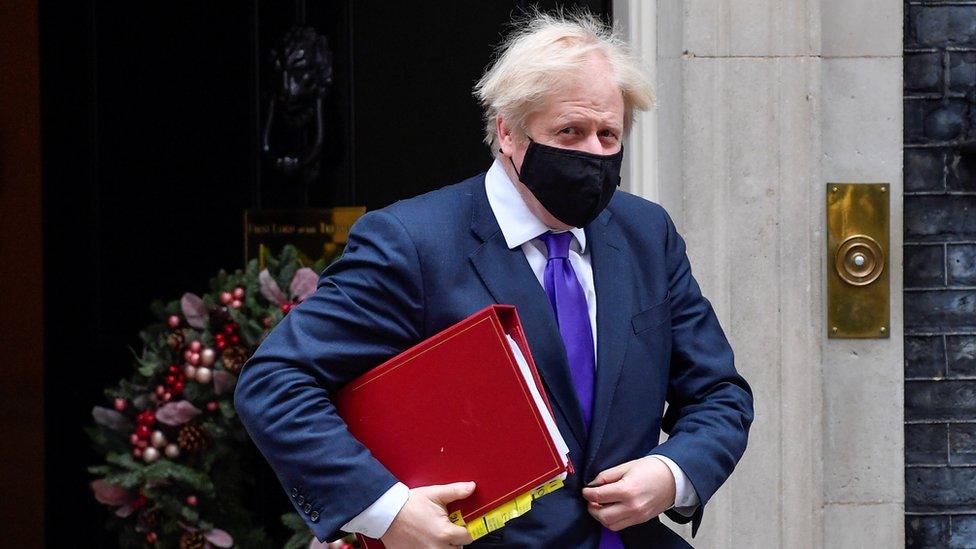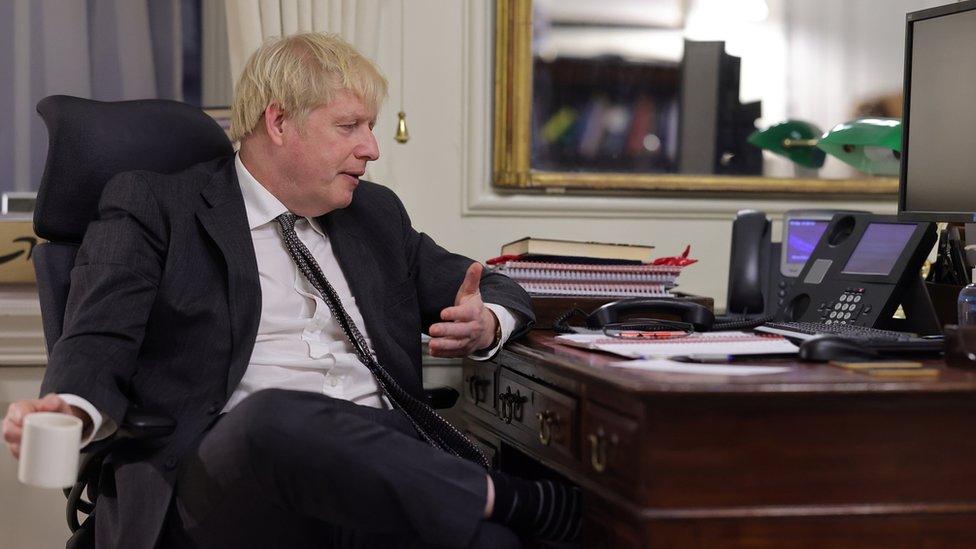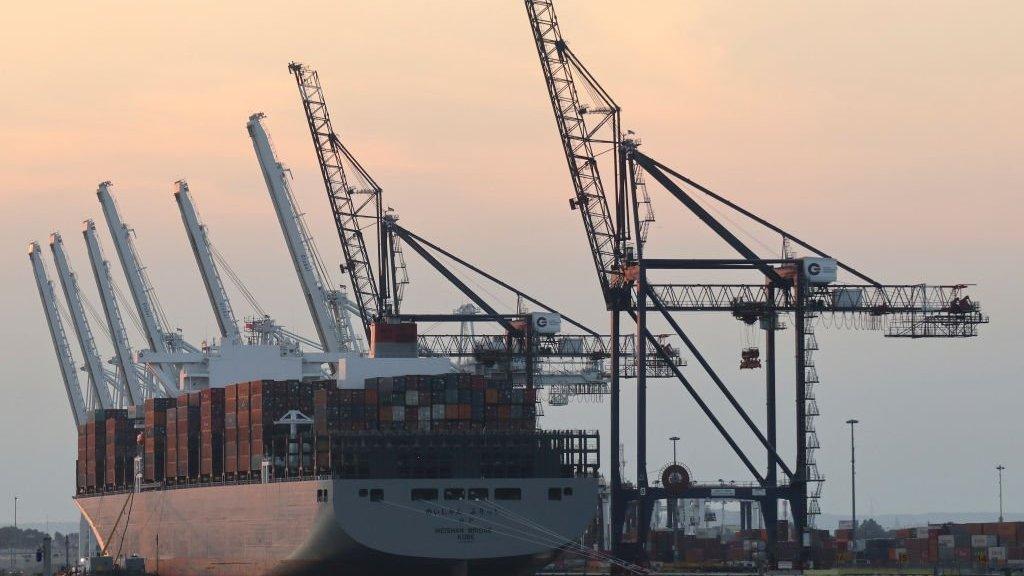Brexit: Can the PM's dash to Brussels save a deal?
- Published

There is nothing surprising about the prime minister going to Brussels in the closing throes of a negotiation that's lasted many months.
That's a standard piece of political choreography - essentially, the bosses get to sign it off, and get their "grip and grin" moment.
The big headlines of drama, before the last-minute victory.
It was only the personal chemistry/diplomatic charm/tough muscle-flexing of the politician at the top of the tree (delete as applicable) that got his almost impossible deal over the final line.
The saga may well follow that well-worn script in the end.
It is still possible that by the end of the week, Boris Johnson will head to Brussels and return the conquering hero to his supporters, proving the naysayers who told him a deal couldn't be done wrong, again.
Making his many detractors gnash their teeth, he would prove the politician who seems to court disaster, but whose toast always lands butter side up in the end.
But as I write tonight, it just doesn't feel that way.
First off, Boris Johnson and European Commission President Ursula von der Leyen have spent a significant amount of time talking in the last few days.
Yes, it's been virtual. And yes, the chemistry in the room does matter, of course.
But the two principals here have had two very lengthy private individual exchanges that don't seem to have resulted in any willingness on either side to compromise, or new instructions to their negotiators to budge.
What is it that they will suddenly be able to realise or discover in the meeting - perhaps on Wednesday or Friday this week - that they haven't yet?

Boris Johnson rang Ursula von der Leyen for the second time in a week on Monday.
Next, as their official statement makes plain, their conversations have not been about a few pesky details that need to be ironed out.
They have made plain that the official negotiations have basically been exhausted and there are still big gaps.
True, there is only a tiny circle of people who know exactly what is going on.
But the messages coming out from the centre are that much more than a nip and tuck is required to get this done.
They haven't asked their negotiators to have another go. They've asked them to sit down and make a list of all the things that are wrong.
No deal expectations
In tone, it's very different to previous such moments, when the leaders were required to put the icing on a cake that was very nearly baked.
And lastly, the expectations regarding an agreement have really shifted since this time last week. Even former strong Remainers now in the cabinet totally accept the notion of no agreement being reached.
One of them told me: "If it fails, it wouldn't be fair to point the finger at London as the villain of the piece. The uniform approach of the EU suddenly looks very ropey, and they have been left exposed."
Another said "everyone is just so fed up" of "EU game playing".
Inside the government, it doesn't seem there would be an effort to stop the prime minister if he decides to walk away.
Historic political accident?
On the EU side, hopes aren't high about what can be achieved by the two leaders when they meet.
One source said: "It feels like Saint Nick didn't bring you what you wanted, and we keep hoping every day he may after all."
Now, before you scream, the two sides both still want a deal of course. And it makes sense to the EU and the UK to find an agreement.
Not to do so would affect the economy, security, Northern Ireland, and so much more.
And for the vast majority of those involved, to fail in this endeavour would be a historic political accident.
But sentiment is drifting away from a happy conclusion.
It's not obvious that a face-to-face meeting between two very different politicians will turn that back.

- Published13 December 2020

